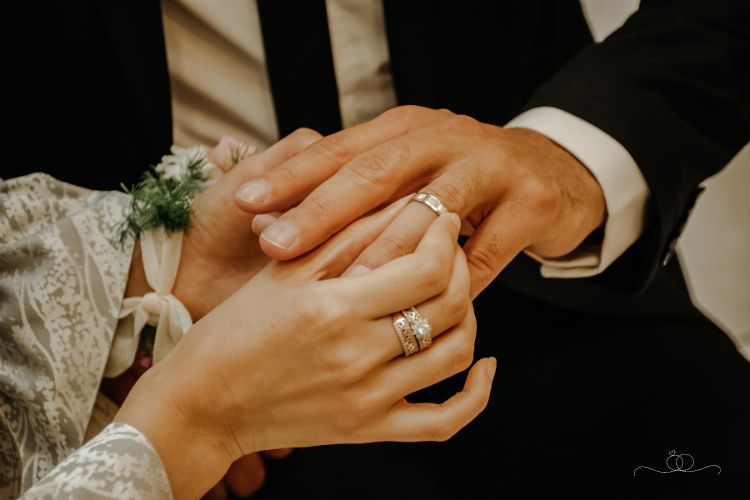This week, our youngest daughter Marissa got married! It was a small wedding at our home, with a perfect outdoor setting. The colors they chose—sage, white, with navy accents, and gold—added a touch of elegance to the celebration. As they cut the cake, they were loving and kind to one another—no smashing cake in the face for this couple!
Sitting back and watching the room, I couldn’t help but reflect on how special this moment was. It wasn’t just the union of two individuals in holy matrimony, but the merging of two families—two networks of love, support, and shared experiences. The bride and groom became the connecting point for something much bigger than themselves.
That’s when I began thinking about the power of connection and its impact not only on a young couple and their families but on all of us, as individuals. Connection is a powerful force in our lives—especially when it comes to our health.
Connection and Its Impact on Health
In our fast-paced, digital world, it’s easy to overlook how vital human connection is to our well-being. Yet, research consistently shows that the relationships we maintain, the bonds we nurture, and the support systems we build are not just emotionally fulfilling—they are critical to our health and longevity.
The science is clear: people who feel socially connected have stronger immune systems, better mental health, and even longer life expectancies. Conversely, loneliness and social isolation are linked to a higher risk of heart disease, depression, and even premature death. In fact, some experts argue that loneliness may be as harmful to our health as smoking 15 cigarettes a day.
The Blue Zones: Lessons in Longevity
A great example of the profound effects of connection on health comes from the Blue Zones, five regions in the world where people live the longest, healthiest lives. These areas—Okinawa (Japan), Sardinia (Italy), Nicoya (Costa Rica), Icaria (Greece), and Loma Linda (California)—share common traits, and one of the most significant is the emphasis on social connection.
In Okinawa, for instance, people form “moais,” or small social groups that provide emotional and financial support throughout life. These groups ensure that no one feels alone, and the sense of belonging helps alleviate stress and promotes happiness. Similarly, in Sardinia, multi-generational family structures mean that older adults stay connected with younger family members, preserving their sense of purpose and belonging.
These strong social bonds are one of the reasons people in Blue Zones have such low rates of heart disease, cancer, and other chronic illnesses—and why they often live to be over 100 years old.
How Connection Affects Us
The power of connection can influence our health in many ways. Talking to friends, helping family members, and allowing people of all ages young and old participate in the daily aspects of life benefits the group as a whole. Here are a few ways that connections supports our health and well-being.
Lower Stress Levels: Strong social connections reduce levels of cortisol, the stress hormone, in the body. This helps protect against a variety of stress-related conditions, from cardiovascular disease to weakened immune function.
Improved Mental Health: Having someone to talk to, lean on, or share experiences with can significantly reduce the risk of depression and anxiety. Knowing that others care about you fosters a sense of security and resilience.
Better Physical Health: People with close relationships are more likely to engage in healthy behaviors, such as exercising, eating well, and adhering to medical advice. Social connections provide accountability and encouragement to live a healthier lifestyle.
Enhanced Longevity: Studies show that people who are socially engaged tend to live longer. This is partially because being around others encourages a greater sense of purpose, which has been linked to lower mortality rates.
How to Foster Connection in Your Life
So, how can we strengthen our own connections to improve our health? Here are some simple ideas:
Prioritize Relationships: Whether it’s family or friends, make time for the people who matter to you. Set aside time for regular catch-ups, dinners, or just casual chats.
Join a Community: Whether it’s a church, a hobby group, or a local organization, find a community that shares your interests. Being part of a group fosters a sense of belonging.
Be Present: When you’re spending time with loved ones, be fully engaged. Put down your phone, listen actively, and connect on a deeper level.
Support Others: One of the best ways to feel connected is to support someone else. Whether through a listening ear or practical help, supporting others strengthens bonds and enhances your own sense of well-being.
As I watched the joy and love that radiated during our daughter’s wedding, I was reminded that life is not just about individual achievements or milestones—it’s about the connections we build along the way. Those connections nourish our souls and our bodies, helping us live longer, healthier, and happier lives. Congratulations to the Bride & Groom!




